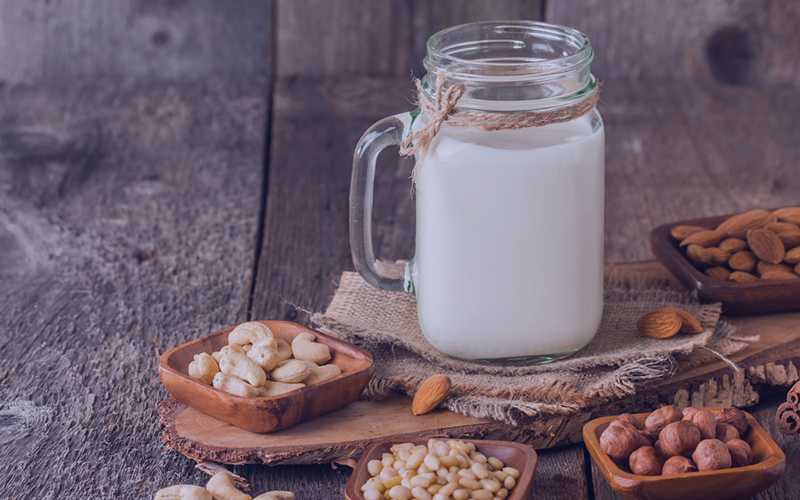Consumers are embracing plant based enthusiastically, viewing it as different from the more widespread vegan and vegetarian. The term plant based embraces a proactive “green eating” movement toward plant-derived ingredients, encouraging reduction but not elimination of animal derived dairy and meat products. categories. Consumers of plant based foods and beverages often support a combination of health, environmental, sustainability and ethical concerns that drives manufacturers to formulate plant based products with a broad range of positionings – non-GMO, gluten free, lactose free, recyclability, and other features associated with clean eating. These products also deliver on taste. Consumers perceive products with a plant based claim tastier, as well as healthier, than vegetarian or vegan products.
Consumers surveyed give various reasons for buying alternatives to dairy and meat, led by health and the desire to try something different. In the United States, consumers also name sustainability and naturalness. Still no more than 15% of consumers surveyed globally report increasing dairy alternatives, with the exception of consumers in India, where 40% increased in the past year.
Plant based dairy alternatives have expanded far beyond traditional soy milk to incorporate different bases – almond, cashew, coconut, rice, oat – and a broad range of non-dairy spoonable and drinking yogurts, cheeses, creamers, and butters. On an indexed basis, dairy alternative drinks are up +60% and spoonable non-dairy yogurts have doubled between 2015 and 2019.
Dairy alternatives often compete on sensory features such as creaminess and flavor rather than nutrient content. After several years of growth, protein claims – a key strength of dairy products – have leveled off on dairy alternatives, appearing on approximately one-third of spoonable non-dairy yogurts and about one-quarter of dairy alternative drinks.
Sojade So Soja Citron Avec Zestes: Fermented Soya Yogurt Alternative with Lemon and Lemon Zests (Belgium, Jul 2020), First Press Merchants Cold Drip Coffee Iced Mocha with Almond Milk (Australia, Jul 2020), Alpro Barista Oat Drink (Bulgaria, Sep 2020).

Matching the protein content of dairy creates sensory challenges. Soy contains high quality protein but is declining in consumer appeal. Pea protein, used in one in five plant based products in 2019, has a distinct flavor and texture that require masking. Widely used almond milk is naturally low in protein. Oat delivers a creamy texture but contains very little protein. Because most plant bases are not high in protein, other proteins must be added to allow products to carry a front-of-pack protein claim.
The dairy industry around the world is lobbying governments to restrict use of the words milk, yogurt, cheese, and butter to animal products only. Regardless of their name, plant based dairy alternatives are likely to remain popular for years to come.
“Plant Based Grows Toward Mainstream” is a new Trends Insider report from Innova Market Insights, which brings together consumer research, market sizes, company analysis and a review of new product trends and activity to demonstrate just how the picture has been changing and to suggest where the future opportunities can be found.





